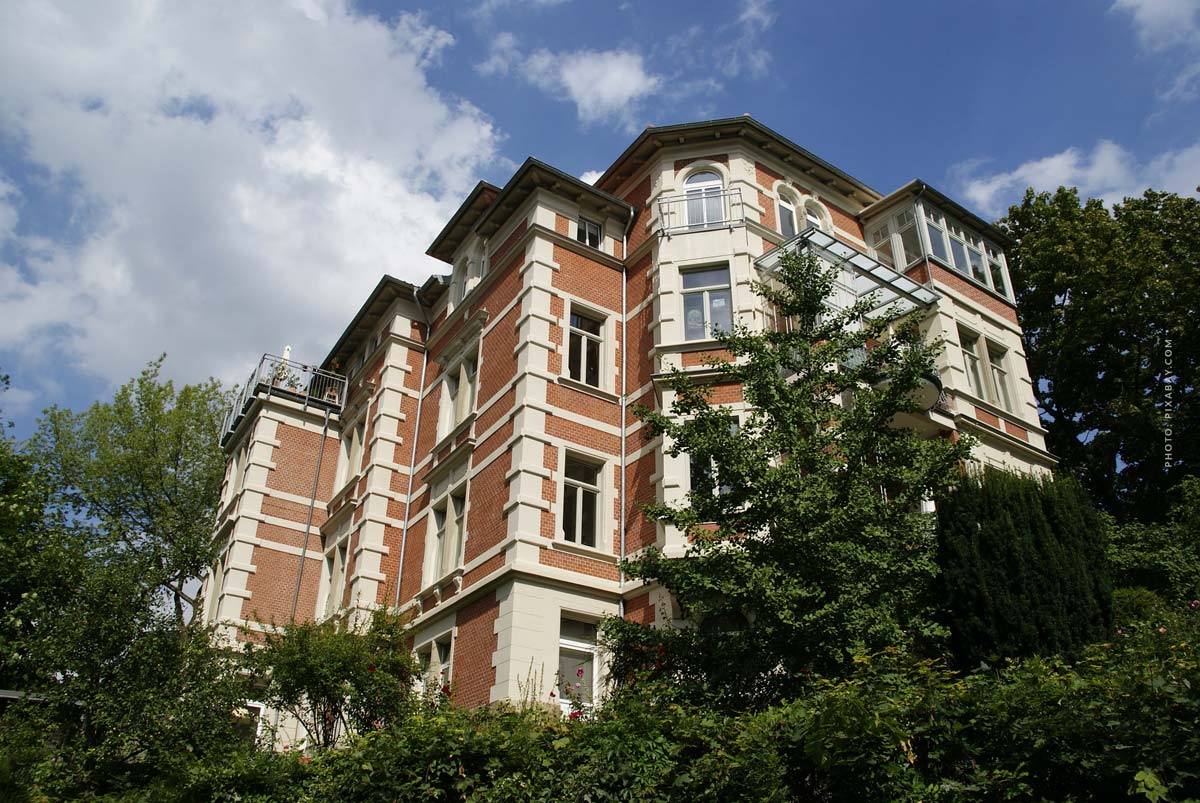Partition auction in community of heirs: procedure, costs and the last resort?
Partial auction in community of heirs – The partial auction is a special variant of the forced sale and is used when several persons have ownership of a thing. This often involves land or real estate that is auctioned off and the proceeds divided among the owners. This situation often occurs in communities of heirs whose estates include real property or land. In a community of heirs, the heirs share ownership of the estate property. Each of them can therefore dispose of his or her own share, but only of the entire property in agreement with the others.
The partial auction for communities of heirs
Objects such as real estate or land often give rise to disputes in communities of heirs. The ideas of how to proceed with the common property are too different and the participants cannot agree. Every heir has the right to demand a partition of the community of heirs at any time and thus to force its dissolution. In such a case, a partition auction may be the last resort to settle the disputes and dissolve the community of heirs. You can find out here what needs to be taken into account in the event of a dispute and a partition auction.
Learn more about communities of heirs!
Application for partition auction – the correct form must be observed
An application procedure always precedes a partition auction. This application can be made by any heir of a community of heirs. Formally, a written application, which must be submitted to the competent district court, is sufficient. However, it must be accompanied by certain documents. In the first application, it must be proven beyond doubt that the applicant has co-ownership of the property to be auctioned. The appropriate document is a corresponding extract from the land register, which must not be older than six months. Once the application has been received, it is examined by the local court and the next steps are initiated.
Partition auction & community of heirs – Video
The procedure – step by step to the partition auction
The process of a partition auction already begins with the application that one of the heirs from a community of heirs must file with the district court. This is followed by further steps in order to carry out the partition auction in accordance with the law.
The expert opinion – assess the value of the property
A partition auction requires an appraisal of the value of the property or land. The court needs this in order to determine the lowest bid for the partition auction. Such an appraisal can be obtained in three different approaches. The petitioner can obtain a private appraisal, but the entire community of heirs must agree to this step. An alternative is to obtain the appraisal through the court. Often a valuation report is already available. As long as this is not older than a few weeks or months, it can also be used.
The minimum bid – determined by the court
The court sets a so-called lowest bid before the partition auction to ensure that the proceeds of the partition auction can cover the costs of the proceedings and all claims of the heirs. Once this is determined, neither the market value nor the purchase price of the property or land is relevant and the lowest bid is considered the notional value. It is made up of the rights, encumbrances and minimum cash amounts. The person who acquires the property or land at the partition auction assumes all rights and encumbrances in addition to the subject matter and thus becomes the purchaser and debtor.
The auction – the highest bid gets the surcharge
Once the lowest bid has been determined by the court, a date for the partition auction can be set. Subsequently, the partition auction of the property or the land should be advertised in newspapers and on the Internet in order to attract interest in the property. Viewing appointments are also possible in consultation with the community of heirs. On the auction date, all interested parties can submit bids within a predetermined time frame. The highest bid is accepted for the property and the community of heirs may be divided.
The duration – varies from case to case
The duration of a partition auction is different depending on the case. It depends in particular on how long it takes to prepare the expert opinion and how long it takes to process the application. The applicant can only shorten the duration by already having a valuation report available when filing the application and the court agrees to its use.
The disbursement – dispute of the community of heirs
The community of heirs does not successfully dissolve until the proceeds have been successfully distributed. Disputes can also arise here. If the testator has not determined the distribution in his will, the statutory inheritance quotas usually apply. If the heirs do not agree, a civil action may be brought. The proceeds from the partition auction are deposited with the district court and are not paid out until the heirs have reached a written agreement on the distribution.
The costs – how much are they and who bears them?
Certain costs are incurred for a partition auction. These include the application costs, the procedural costs, the expert’s fees, the lawyer’s fees and the costs for newspaper and internet advertisements. All these costs are incurred when the court orders a partition auction. The costs for the notification of the co-heirs are part of the application costs. Usually, the costs of the proceedings have to be paid as an advance. Who bears the costs of a partition auction depends on the outcome of the auction. If the auction is successful, all costs will be deducted from the proceeds and thus each heir will share equally in the costs. However, if the auction is not successful, the applicant bears the costs alone and the community of heirs continues to exist.
The alternatives – private sale or voluntary auction
The partition auction involves some risks that should be well thought out in advance. The property could be sold below value and lead to low profits for the heirs. There are some alternatives that eliminate these risks. The property can be sold privately, saving the application, procedural and legal fees. In addition, the heirs can choose the buyer themselves and thus ensure that the property is not sold below value.
Another alternative is the voluntary auction. The community of heirs can turn to a public auctioneer who organises and conducts an auction. The advantage here for the heirs is that the minimum bid can be determined themselves and thus there is no risk of an auction below value. However, in both cases the community of heirs must unanimously agree to the sale of the property.
The most important questions on the subject of partition auctions in communities of heirs
A partition auction can resolve disputes within a community of heirs, but it can also reignite disputes. To avoid mistakes and save time, it is important to take the right steps. Lukinski’s experts answer the most important questions on the subject of partition auctions in detail for you.
Why a partition auction?
A partition auction can put an end to long disputes, especially in communities of heirs, and lead to a result with which all heirs agree. The partition auction also offers the last resort if no agreement can be reached.
What does for the purpose of abolishing the community mean?
The partition auction success for the purpose of the abolition of the community around from an indivisible article, like a property or a real estate a divisible money equivalent to generate.
What is a partial auction of a house?
A partial auction is held when several people are co-owners of a property. The partial auction turns an indivisible object into a divisible amount of money that can be divided among the owners.
What does § 1010 BGB mean?
Pursuant to § 1010 of the Civil Code, the co-owners of a plot of land may make arrangements for the administration or use of a plot of land or exclude the right to demand the dissolution of the community.
What did ZVG mean?
The abbreviation ZVG stands for Zwangsversteigerungsgesetz. This regulates both the forced sale and the forced administration.













